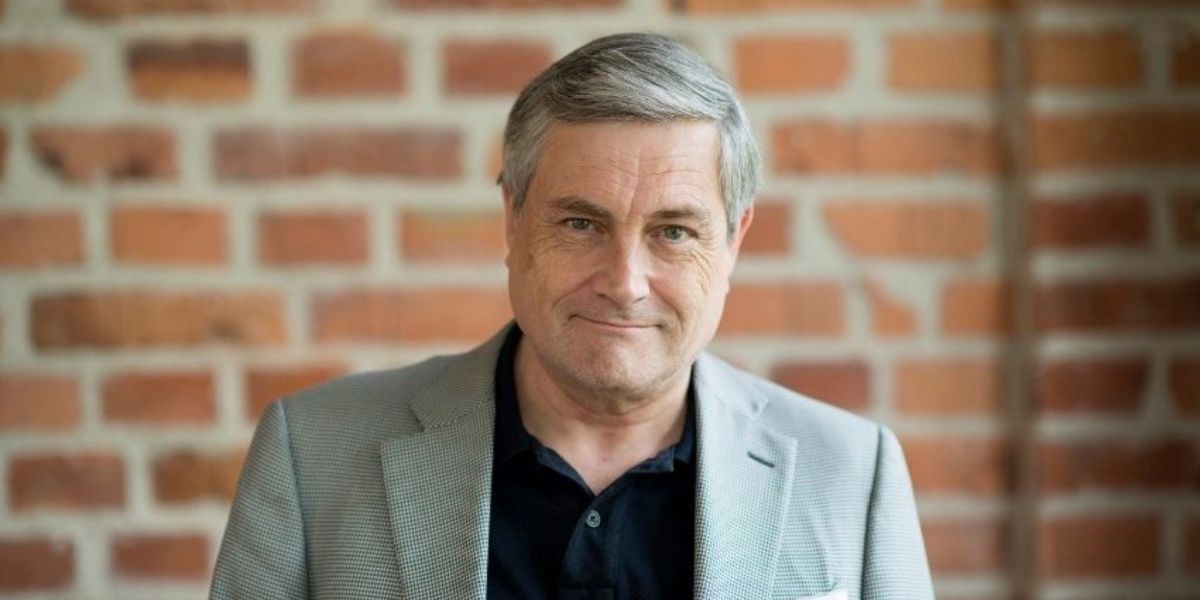Christopher Coker, formerly Professor of International Relations at the London School of Economics and Political Science (LSE) for nearly four decades, and then Director of LSE Ideas has died at 70. He brought enormous influence and deep inspiration to generations of students, academics, and practitioners of strategy and war.
For students at LSE and for many practitioners and decision makers worldwide he was known for his formidable intellect and wide erudition. But he was also known for his dark humour, personal kindness and generosity, invariably willing to share his time and knowledge.
Christopher’s interest in war began when he was very young, as he listened to stories from his parents and grandparents who had fought in two world wars. He was educated at Cambridge and Oxford University in the 1970s, but he spent his entire academic career from 1982 at LSE. He struck an unusual profile there, standing out not only for his brilliant mind, but for his unapologetic conservative politics, at a university that prided itself on its radical and progressive legacy. He had the courage of his personal opinions, although they were usually not discernible in neither his lectures nor his books.
As a phenomenologist of war, Christopher approached the subject matter more in the spirit of an artist or a philosopher, than a conventional IR academic, even though he called himself a political scientist. He spent a lot of his time travelling all over the world and gained many friends through taking up affiliate positions and giving talks at defence colleges, think tanks and military institutes, as well as universities. Media shy and allergic to self-promotion, he never received nor craved the fame outside his own field that he truly deserved.
In a sense, Christopher established a one-man insurgent War Studies department inside LSE’s Department of International Relations, challenging the one across the road. None of the disciplinary nor conventional boundaries applied here. It was a space where realism was seasoned with literature and philosophy. Essay- and chapter feedback would typically take place in his famous office, which featured a fascinating plethora of totalitarian art, battlefield pieces and memorabilia from across the world. His collection included a note from Donald Rumsfeld he recognised was a provocation to some visitors, which brought him no end of joy. From here the session would often extend to his regular haunt, the campus fine dining restaurant Coopers.
His many students over the decades, including from Norway, found a rare combination of originality and accessibility in his thinking, and thus relevance beyond disciplinary categories. Christopher’s lectures were invariably packed with students from across the school, who were challenged and inspired whether they were undergraduates or PhD students.
Those who studied under him found in Christopher Coker a towering, even intimidating, intellect, yet a magnetic personality and a sense that there was always more to learn and to discover. Nobody else studied war quite like he did, and when pressed he was unable to come up with any alternative subject he would conceivably devote himself to, or for that matter any different career. The way war kept him in thrall was in his opinion best captured by a line from Dickens: “There are dark shadows on the Earth, but its lights are stronger in the contrast. (But) some men are like bats or owls and have better eyes for the darkness than for the light.”
Christopher’s 27 books straddled three phases, beginning with a relatively conventional focus on British and American foreign policy, trans-Atlantic relations, and the late Cold War superpower competition. However, after a period of sick leave in the early 1990s he emerged with a fresh and extremely widened and ambitious perspective, to map the meaning of war in the 20th Century and to understand not only what made men go to war, but the life affirming features of it that sustained them at the front. The wide erudition continued with War and the Illiberal Conscience, a brilliant and dark nod to Michael Howard’s War and the Liberal Conscience. Gradually in step with the emerging wars after 9/11, Christopher’s own voice became more distinct in his writings starting with Humane Warfare in 2001.
The Iraq and Afghanistan wars became the main preoccupation for most practitioners for two decades, but not for Christopher. He was deeply sceptical of counterinsurgency and its oversold promises, and he instead kept his eye on the longer game, with the rise of China and the implications of technological development and the possibility of post-human warfare. His closest attention remained on the human experience of war, whether through an ethical lens, or that of war’s protagonists, the warriors themselves, or the leading philosopher of war of all time, Clausewitz. In his final books there was a sense of taking stock, of considering war in its entirety, with Barbarous Philosophers and his final book Why War? where he argued war is going to remain with us.
To my knowledge Christopher’s early intellectual influences featured three notable individuals. His supervisor at Oxford was the late Sir Michael Howard, the leading military historian of his era. At Oxford Christopher’s mentor became Hedley Bull, one of the founders of the English school of realism, and a man he found more of a kindred spirit on a personal level. Finally, Philip Windsor, whose course Christopher inherited and developed further: Strategic Aspects of International Relations III. Windsor was a strategic thinker whose main preoccupation was nuclear strategy. He was, much like Christopher himself, a spellbinding speaker. Christopher’s words in his blurb to Windsor’s Strategic Thinking ring true for both men’s delivery: “deep insight, great humanity and imagination, and brilliant presentation.”
Christopher carried forward more than just his forebears’ intellectual nous, but also a calling for mentoring the next generation. Howard was known for always listening to the young, and Hedley Bull received students until within days of his death. In Howard’s obituary to Bull he closed with words about Bull’s students that strikingly foreshadow Christopher’s fate as well: “They, perhaps even more than his writings, were to be his true legacy to mankind.”
Christopher Coker is survived by no family members. He was an exceedingly private man, rarely volunteering personal details, and reluctantly giving any when asked. However, he used to say that his students were his children. Among legions of them he will be sorely missed, and never forgotten.
Photo: London School of Economics




